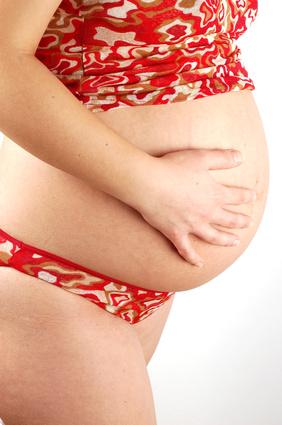Omega-3 might sound like the name of a planet, but it is one of the most nutritious elements necessary in your daily diet. Omega-3 fatty acids consist of EPA (Eicosapentaenoic acid), ALA (Alpha-linolenic acid) and DHA (Docosahexaenoic acid). DHA, in particular, is critical to your health and your baby’s development.
Benefits
You and your baby need the DHA from omega 3 for many reasons. The March of Dimes explains that babies in the womb need DHA for their nervous system and eye development. It also helps maintain your heart and brain function. If that’s not enough, it also keeps your skin moist and glowy. The March of Dimes also advises that pregnant women get 200mg of DHA each day, although most get less than half of this.
Sources
Omega-3 fatty acids are found most often in fish. Your morning sickness may not be letting you get excited about a fish diet yet, but consider the number of options. Baked or sautéed salmon, tuna or halibut all bring omega-3 fatty acids into your diet. Even a can of tuna would work. If fish isn’t among your cravings, try a bright green salad or walnuts in your granola. Cook with flaxseed oil or canola oil. If all these are not enough, ask your doctor about supplements that will get 200mg of DHA into your system each day.
Time Frame
Throughout the course of each day, you should get 200mg DHA. If you are trying to work fish into your diet, the American Heart Association (AHA) recommends that pregnant women eat 12 oz. or two servings of fish per week.
Considerations
Because your developing baby and your changing body need so many nutrients, choose foods that bring you omega-3 fatty acids as well as other nutrients. Eat fish full of protein. Choose leafy greens, cooked in oil, packed with folic acid. If you are vegetarian, try tofu or soybeans for protein and omega-3.
Warning
Although fish is one of the best sources of omega-3 fatty acids, it often contains small levels of mercury. Pregnant women should limit their fish intake to twice a week. To further limit the risk of mercury, eat fish, such as salmon, that contain the lowest levels of mercury. Small, young fish is also a good option, as it has not had an opportunity to absorb much mercury. Whichever fish you choose, ensure it is cooked thoroughly to avoid bacteria.
Photo Credit
- pregnant #9 image by Adam Borkowski from Fotolia.com





